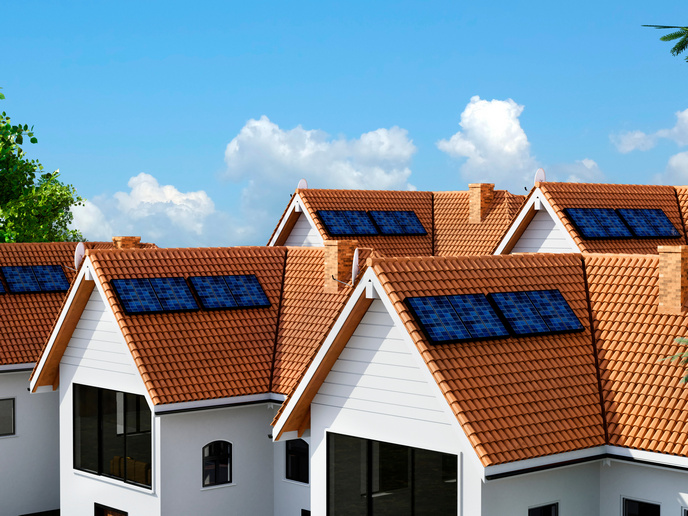Connecting neighbours in direct-energy-sharing business models
Energy communities(opens in new window) – citizen-driven energy actions – enable local stakeholders to join forces in innovative ways to benefit from and contribute to the energy transition. Peer-to-peer(opens in new window) (P2P) energy trading has emerged as an interesting prosumer model without central intermediaries. Energy consumers can purchase low-cost electricity directly from their neighbour, eliminating the need for traditional energy suppliers and giving participants more control over their energy production and use. User-centred residential energy communities could have a significant impact on increasing the contribution of renewable energy sources and reducing energy use and emissions, contributing to the achievement of Europe’s ambitious climate neutrality goals for 2050. The EU-funded NRG2PEERS(opens in new window) project has developed a web platform to enhance uptake of next-generation P2P energy communities. The platform was piloted in nine use cases throughout Europe.
Accelerating on-boarding of energy community members
The NRG2PEERS web platform hosts various tools. The ‘Readiness Level Indicator’ helps those interested in becoming a P2P energy community determine how ready they are to do so. It also provides suggestions on how to increase readiness. Three separate modules assess user, organisational, as well as technological and infrastructural readiness. Users receive a report by email. “The ‘Readiness Level Indicator’ demonstrated adaptability beyond its initial purpose, evolving into an effective awareness-building and conversation-provoking tool,” notes project coordinator Simona D’Oca of Huygen Engineers & Consultants(opens in new window) (website in Dutch). The website’s ‘Advisory App’ section provides information on P2P energy communities. It can help anyone – including potential, current and future members – address challenges. By using this website, users can create or join a community and participate in a users’ forum, connecting with stakeholders. Finally, the ‘Open Data Solution’ is designed to give third parties who have a contract with an energy community, access to their energy community’s data.
Encouraging change and adoption of smart demand response services
The NRG2PEERS project has investigated smart demand response mechanisms and flexibility services to optimise energy consumption and peak demand at community level. They target financial savings, CO2 and environmental savings, and local energy self-reliance. According to D’Oca: “NRG2peers’ work has optimised energy use via two actions: shifting the loads of electrical appliances like space heaters, washing machines and dishwashers or selectively turning on electrical storage devices. These specific actions are not meant to reduce the delivered energy, but rather to allocate the same final energy to different times, enabling primary energy savings due to increased use of renewables.” In addition, NRG2PEERS conducted successful information and awareness campaigns to encourage behavioural changes.
Energy sharing benefits communities and the environment
The NRG2PEERS undertook testing and validation in carefully chosen pilots, involving some 356 households. Results indicate energy and CO2 emissions savings from behavioural changes as well as from operational changes via community-level optimisation leveraging smart demand response mechanisms. “The NRG2PEERS project has delivered results in achieving its energy efficiency and sustainability goals and demonstrated the adaptability of its platform and tools across diverse European communities. The successful integration of behavioural strategies, renewable energy initiatives and operational optimisations underscores the project's holistic approach to fostering positive change via P2P energy communities,” notes D'Oca. The NRG2PEERS project has shown the potential of community-driven, sustainable energy practices in our global energy landscape.



